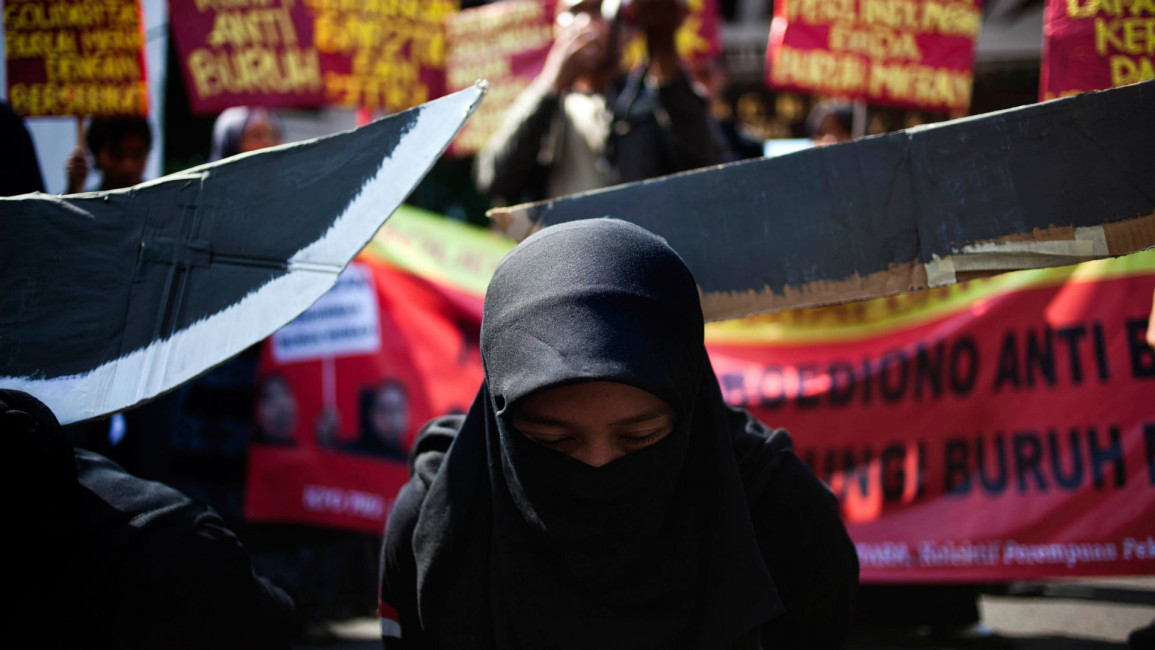Amnesty demands Saudi Arabia halt planned execution of teenage protester
A Saudi teenager who has been detained in 2014 could face the death penalty after being accused of attending a demonstration when he was just ten-years-old, Amnesty International said on Friday.
Murtaja Qureiris was arrested by police aged-13 and charged with a series of offences, including his alleged participation in a protest as a ten-year-old in the east of the country in 2011.
A video shared by CNN allegedly shows Qureiris as a boy among bike protesters in Saudi Arabia's Shia-majority Eastern Province.
The kingdom's public prosecution confirmed to Amnesty International this week that it was pursuing the death penalty for the teenager, despite one of the offences being allegedly committed by Qureiris when he was still a boy.
"There should be no doubt that the Saudi Arabian authorities are ready to go to any length to crack down on dissent against their own citizens, including by resorting to the death penalty for men who were merely boys at the time of their arrest," said Amnesty International's Middle East Research Director Lynn Maalouf.
"It is appalling that Murtaja Qureiris is facing execution for offences that include taking part in protests while he was just 10 years old."
Executing anyone convicted of crimes below the age of 18
is strictly forbidden under international law.
Qureiris was detained at the juvenile detention centre in al-Dammam city in September 2014, and held in solitary confinement for a month, while he was beaten and subjected to intimidation by his interrogators.
He was charged with attending anti-regime protests, attending the funeral of his brother Ali Qureiris who was killed in a 2011 protest, joining a "terrorist organisation", throwing Molotov cocktails at a police station, and firing at security forces.
The protests were part of widespread unrest among Saudi Arabia's Shia-minority about government discrimination.
Amnesty International said that Riyadh has used executions and the threat of the death penalty to stifle political opposition.
"The Saudi Arabian authorities have a chilling track record of using the death penalty as a weapon to crush political dissent and punish anti-government protesters -including children- from the country's persecuted Shia minority,” said Lynn Maalouf.
In April, Amnesty International confirmed another Shia young man who was arrested aged-16 for taking part in anti-government protests was executed.
He was among 37 men executed in one day earlier this year, in a spree of executions that activists say were politically-motivated.
Ali al-Nimr, Abdullah al-Zaher and Dawood al-Marhoon, arrested in 2012 aged between 16 and 17 for taking part in political also face execution at any time.
"Instead of stepping up their use of the death penalty to silence critics Saudi Arabia's authorities should immediately revoke the death sentences against Ali al-Nimr, Abdullah al-Zaher and Dawood al-Marhoon and save these young men’s lives," said Maalouf.
"The international community also has a crucial role - they must take a public stand on these cases and demand that the Saudi authorities end their use of the death penalty once and for all."


![President Pezeshkian has denounced Israel's attacks on Lebanon [Getty]](/sites/default/files/styles/image_684x385/public/2173482924.jpeg?h=a5f2f23a&itok=q3evVtko)



 Follow the Middle East's top stories in English at The New Arab on Google News
Follow the Middle East's top stories in English at The New Arab on Google News


